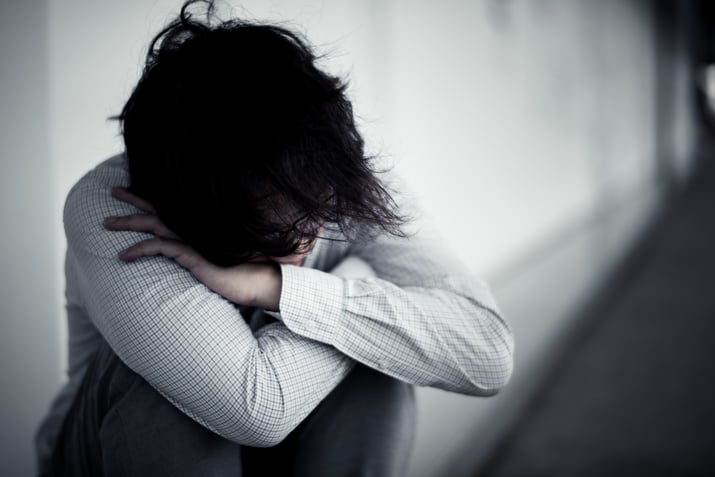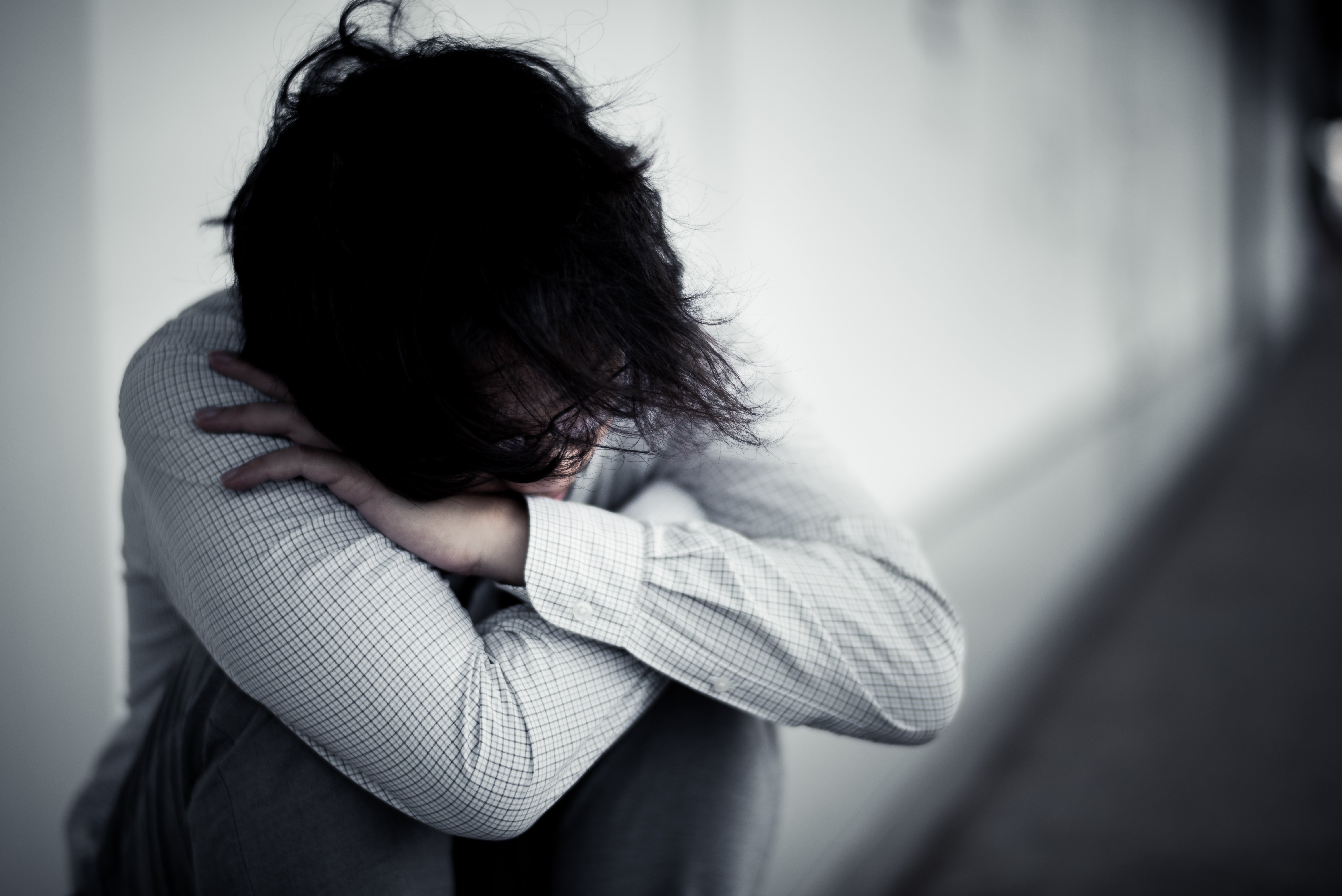Do you ever feel as if you’re all alone when you see your friends and family living their lives without a chronic pain disease? Do you ever find yourself feeling isolated, numb, and shut off from reality because no one understands what you’re going through? Have you ever asked yourself, “why me?” I would like to resolve these thoughts with a simple comment, “you are [not] alone.” In fact, According to some estimates, more than 50% of depressed patients who visit general practitioners complain only of physical symptoms, and in most cases the symptoms include pain. Some studies suggest that if physicians tested all pain patients for depression, they might discover 60% of those patients suffer from undetected depression. That is a statistically significant number! So please repeat after me, “I am not alone.” Did that help? Well, if not, hopefully by the end of this article you will be chanting that with confidence.
It’s All Science’s Fault
The convergence of depression and pain happens within the circuitry of the nervous system [1]. In the experience of pain, communication between body and brain goes both ways. Typically, the brain diverts signals of physical discomfort so that we can concentrate on the external world. When this shutoff mechanism is impaired, physical sensations, including pain, are more likely to become the center of attention. Brain pathways that handle the reception of pain signals, including the bed of emotions in the limbic region, use some of the same neurotransmitters involved in the regulation of mood, especially serotonin, and norepinephrine [3]. When homeostasis fails, pain is intensified along with sadness, hopelessness, and anxiety. And chronic pain, like chronic depression, can alter the functioning of the nervous system and perpetuate itself [4].
 via shutterstock.com |
Numbers Don’t Lie
Numerous studies have found that there exists a strong correlation between chronic pain and depression [1-4]. Researchers have shown that regardless of what side of the coin you’re looking at, there exists a reaffirmed association between the two. For example, depression may lower the threshold for pain causing someone to be more sensitive to pain; or the lethargy, exhaustion, and indolence symptoms associated with chronic pain can lead to depression [2]. Both cases are real and rest assured that you are [not] the only one in this boat; nonetheless, you are also [not] wrong in believing one can cause the other. Pain slows recovery from depression, and depression makes the pain harder to treat. Both pain and depression feed off each other, by changing both brain function and behavior. Let’s use a couple of real life conditions to hit home the correlation. Depression has been shown to contribute substantially to the symptoms associated with arthritis, headaches, and back pain [2]. Not to mention, there also exists a link between fibromyalgia and depression. Fibromyalgia is still not a well-understood disorder and can still be difficult to diagnose, but there is no disagreement that fibromyalgia may demonstrate the biological link between pain and depression [7]. Symptoms of fibromyalgia have included widespread muscle pain and tenderness at specific trigger and pressure points. Brain scans of people with fibromyalgia show highly active pain centers, and the disorder may associate with depression than most other medical conditions. Again there is still ongoing research as to the cause of this disease but once diagnosed, there exists a strong correlation with fibromyalgia and depressive cycles [7].
Depression leads to isolation and isolation leads to further depression; pain causes fear of movement, and immobility creating the conditions for further pain. This cycle in itself can be a struggle, but there is hope! Studies have also found that when depression is treated, pain often fades away; and when pain is treated, so does much of the suffering that causes depression [6]. I emphatically understand just how hard it can be to live with chronic pain and depression. Thus I have compiled some tips that may help you in at least purging yourself of pain and depressive symptoms. Still needing reassurance on “I’m not alone”? Well, let’s get right to it then!
Tips for Reducing The Isolation With Chronic Pain & Depression
1. Have Your Diet In Check
The old saying, “food is medicine” holds more truth than we realize. What we eat plays a significant role in how we feel; it is crucial for us to have a balanced diet to sustain our overall well-being. A balanced diet is especially important in those who suffer from a chronic disease. For example, Irritable Bowel Syndrome, as well as, Chron’s Disease are both autoimmune-chronic diseases. What both diseases have in common is inflammation somewhere along the gastrointestinal tract [8]. This inflammation can cause severe pain throughout the abdomen. By ensuring a proper diet for these conditions, it not only can reduce the amount of inflammation but also minimizes the risk of depressive symptoms. Yes, sometimes food can play a significant and negative role in the cycle between chronic pain and depression. It can be used as a coping mechanism that can lead to more negative emotions and behaviors [5]. Food can undoubtedly contribute to this cycle. Thus it is important to be aware of the foods that you and your healthcare provider deem appropriate. Try your best to eat a well-balanced diet, consume a sufficient amount of water, and any necessary vitamins & medications.
2. Being Aware and Mindful
Mindfulness is the practice of being present and being aware of your surrounding environment. It can play a significant role in treating both pain as well as depression. There are numerous books and phone apps that can guide you through the practice of being mindful. There are also many therapies such as Dialectical Behavioral Therapy (DBT) and Cognitive Behavioral Therapy (CBT) that incorporate this practice into their core values [4]. Also, the practices of meditation and yoga are centered on being mindful. Your physician and therapist will guide you in the best direction that is most fit for you.
3. Setting Boundaries
Someone with a chronic illness and depression can be more prone to self-destructive thoughts [1]. Do your best not to fall prey to these irrational thoughts. Research has shown that those who keep a record of their mood and symptoms are more likely to be less depressed [3]. By doing this, you will be able to see which activities help or hinder your mental or physical illnesses. Above all, be kind to yourself. Massages and warm baths can do wonders for relaxing our bodies and our minds, which in turn may reduce the intensity of pain.
4. Medications Are A Valuable Resource
No one is denying that it can be difficult in following a medication schedule correctly; especially if depression or chronic pain is leaving you stagnant and unmotivated. Yes, medications have their side effects, but when utilized appropriately and being honest with your doctor, they can be one of your greatest allies. With that said, there are also tips that you can do to ensure that you make your medications work for you and not against you. Both depression and pain symptoms can be made worse with a lack of sleep. Most pain medications and anti-depression medications both can make you drowsy [7]. Due to this, it is vital to set up a sleep regimen. Always be honest with all your doctors when sharing what medications you are on and how you are feeling on the medicine. Being honest is important because many drugs can exhibit drug-drug interactions where one or the other drug will inhibit or induce an effect that is not desirable [7]. By being dishonest about your medications, you run the risk of your doctor prescribing you a drug that may interact with the medications your doctor did not know you were on. Dishonesty creates more of a problem in achieving remission either from pain or depressive symptoms. So make sure your doctors are either in communication with one another or you are upfront with them to make sure there are no contradictions.
 via shutterstock.com |
5. Guess What? You’re Not Alone
Getting tired of hearing that by now? I hope so because it is true! With that being said, you also do not have to suffer alone. There are forums and Facebook groups for almost all conditions and talking to other people who know what you are going through can always help you feel supported. Your pain management or your psychiatrist will be your best resource for finding the group that fits what you’re looking. If one support group does not work out, try another one. We are meant to be communal. I promise you, finding the people you know exactly what you’re going through will be an incredible ally to have in this battle.
So let's say it together, “ I am [not] alone!” I hope you agree with this by now. I also hope that you can definitively agree that your pain may lead to the development of depressive symptoms; thus you’re not making things up by thinking so. The tips above are by no means an absolute recommendation. Try some of this advice and modify them till you determine what works best for you. Use them solely as a foundation to get you moving in the right direction.
References
- Bair MJ, et al. "Depression and Pain Comorbidity: A Literature Review," Archives of Internal Medicine ( Nov. 10, 2003): Vol. 163, No. 20, pp. 2433–45.
- Bao Y, et al. "A National Study of the Effect of Chronic Pain on the Use of Health Care by Depressed Persons," Psychiatric Services (May 2003): Vol. 54, No. 5, pp. 693–97.
- Lesho EP. "When the Spirit Hurts: An Approach to the Suffering Patient," Archives of Internal Medicine ( Nov. 10, 2003): Vol. 163, No. 20, pp. 2429–32.
- Holmes, P., Georgescu, S. & Liles, W. (2005). Further delineating the applicability of acceptance and change to private responses: The example of dialectical behavior therapy. The Behavior Analyst Today, 7(3), 301-311.
- Ohayon MM, et al. "Using Chronic Pain to Predict Depressive Morbidity in the General Population," Archives of General Psychiatry (Jan. 2003): Vol. 60, No. 1, pp. 39–47.
- Parker JC, et al. "Management of Depression and Rheumatoid Arthritis: A Combined Pharmacologic and Cognitive-Behavioral Approach," Arthritis and Rheumatism ( Dec. 15, 2003): Vol. 49, No. 6, pp. 766–77.
- Turk DC, et al. "Psychological Factors in Chronic Pain: Evolution and Revolution," Journal of Consulting and Clinical Psychology(June 2002): Vol. 70, No. 3, pp. 678–90.
- Volta U, Caio G, De Giorgio R, Henriksen C, Skodje G, Lundin KE (Jun 2015). "Non-celiac gluten sensitivity: a work-in-progress entity in the spectrum of wheat-related disorders". Best Pract Res Clin Gastroenterol 29 (3): 477–91.
This article was originally published on orangemedicalpain.com and can be found here.

Custom Craftworks
Originally founded in 1986, Custom Craftworks supports the vital work of professional manual therapists and educators in the massage therapy and holistic health fields by designing, building and sourcing the best-quality massage tables, chairs, equipment and accessories available. In 2009, the company was acquired by Pivotal Health Solutions based in Watertown, South Dakota.


